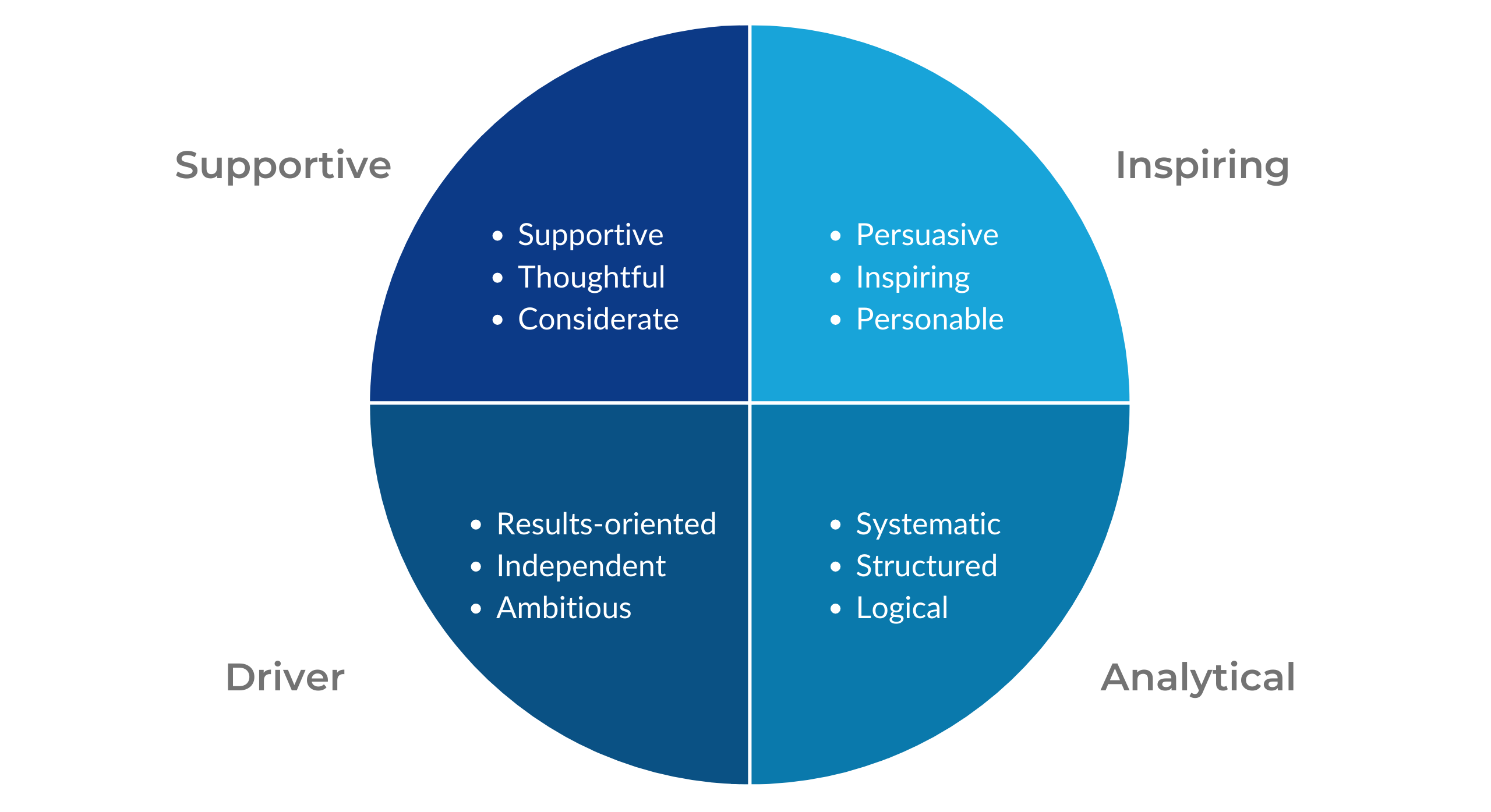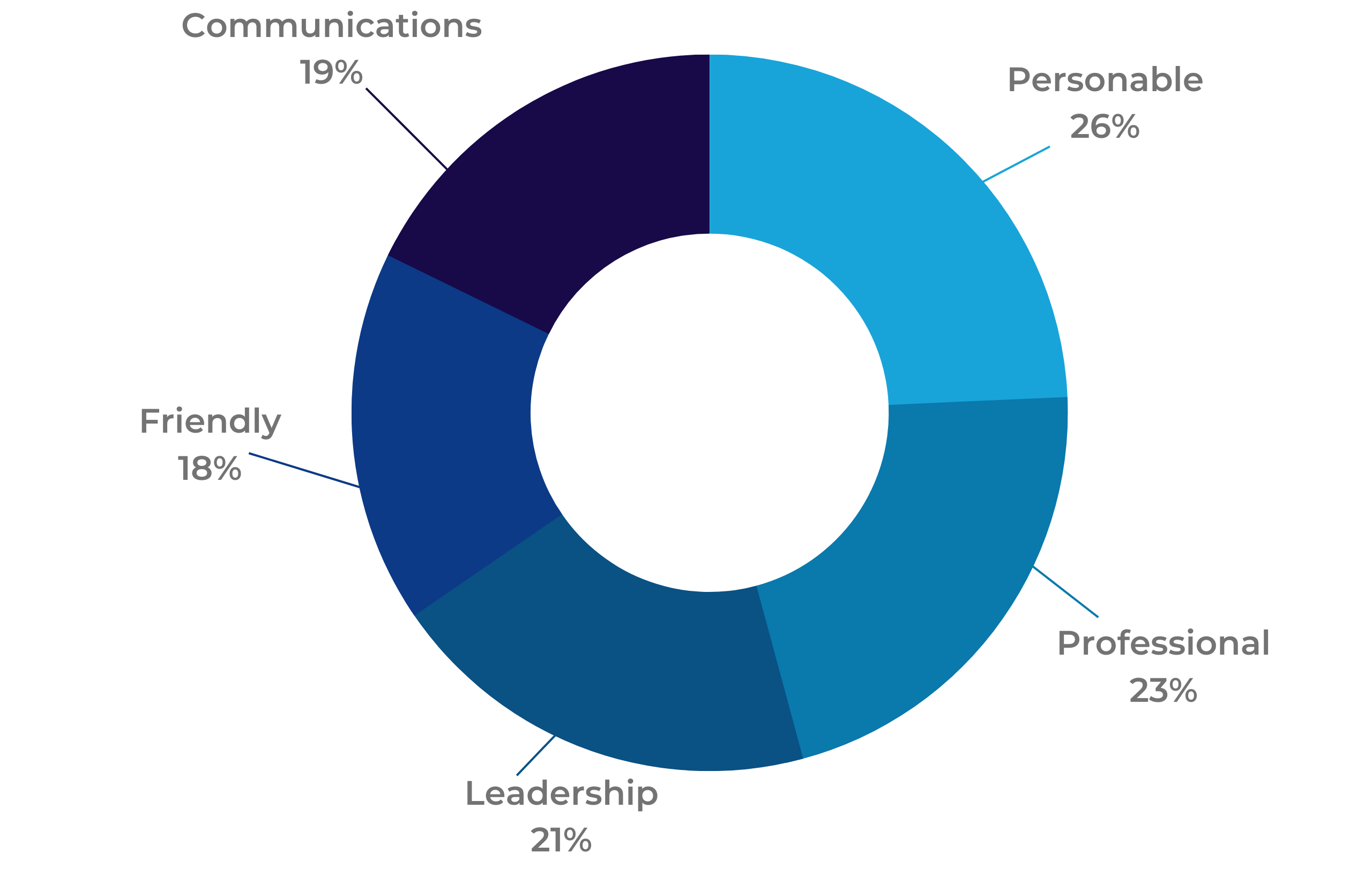Leveraging Personality Research to Find Club Leaders
- May 3, 2023
- Dr. Eric Brey, Insight, Private Clubs, Featured, Michael Gregory, Executive Search, Latest Research, Research

As the club industry continues to evolve following the COVID-19 pandemic, many clubs are facing the challenge of finding the next great Chief Operating Officer/General Manager (COO/GM). The increase in retirements, a constrained talent pipeline, and the change in expectations of work-life integration contribute to an increasingly challenging talent acquisition environment.
Many clubs will turn to search firms to help find the right leader for their club. As part of the process, most firms conduct an introductory inquiry into the functional aspects of the position by identifying the requirements and the unique knowledge, skills, and abilities the club needs. While this is an important introduction to the position's basics, it doesn’t necessarily identify the often hidden and interrelated needs unique to the club and the membership. To successfully conduct an executive search, a deeper understanding of the position is often necessary.
Using a research-based approach creates deeper, data-informed insights to target suitable candidates and enhance the success of the search. In developing an understanding of the position and the club itself – its traditions, culture, and future aspirations - a more targeted approach can be used to locate the right candidate. This is accomplished by engaging multiple stakeholder groups at a club to identify the right candidate pool, attracting potential hires and correctly assessing fit, and placing a candidate with the best opportunity to help move the club forward.
Unlike traditional, industry connections-first processes focused on managerial skillsets, research can further clarify the unique considerations of each club to find suitable candidates. Examining the personality required of future leaders creates a depth of insight to help build the managerial environment, meet the members' expectations, and position the club for long-term success.
Personality tests, which have been widely used for decades, are based on the four temperaments identified by Hippocrates:
- supportive personality traits (e.g., supportive, thoughtful, considerate).
- inspiring personality traits (e.g., persuasive, inspiring, personable).
- driver personality traits (e.g., results-oriented, independent, ambitious).
- analytical personality traits (e.g., systematic, structured, logical)

Unlike personality tests applied to potential candidates, GGA emphasizes the importance of the club’s expectations and environment to identify suitable candidates. This process includes pinpointing the specific operational skills and personality traits needed to be successful in the COO/GM position. After meeting with the governing board and search committee to understand the specifics and unique considerations of the position, a multi-step research process is undertaken. This includes engaging staff and member stakeholder groups to help identify the right criteria for the position. We continue to collaborate with the club during the extensive interview and placement process, continuing through and past the placement as part of the extensive executive search process.
Our research in COO/GM executive searches has found that the most preferred personality traits relate directly to the need for leaders to demonstrate key components of empathy. Being personable is one of the most mentioned personality traits, followed by needing a professional demeanor and showing effective leadership characteristics. Being friendly is also important, along with the need to have a natural ability to communicate with members and employees alike. Most importantly, these attributes are distributed across all four groups of the personality traits mentioned above (supportive, inspiring, driver, and analytical), indicating the need for balanced leaders that demonstrate an effective mix of personality traits.

While more than 35 personality traits have been identified as important, there is a high degree of overlap and alignment between the staff and membership (e.g., each group sees professionalism as incredibly important). However, differences also emerge between these two groups. Being friendly was the members' most important inspiring personality trait while compassion was most important for employees. These differences demonstrate how each group’s preferences are driven by their interaction with the COO/GM (e.g., employees want a leader to show compassion, whereas members want a friendly leader). Personality traits also differ based on the club’s current needs, culture, and other dynamics identified during the search process.
While basic research can identify the unique needs of each club and even potential differences between stakeholder groups, a more detailed process paints a much deeper picture of what is required. Take professionalism, for example. Everyone knows professionalism when they see it, but how does professionalism relate to other personality traits? Using our advanced analysis techniques, results indicate that professionalism is not simply a construct that exists on its own. When searching for a club leader, professionalism must be demonstrated across multiple other traits, such as how candidates listen, communicate, and how they establish approachability. Crucially, the importance varies across other personality traits, indicating clubs are looking for professionalism as related to some areas more than others.
Like leadership abilities and functional skills, personality is essential for a club to find its next successful COO/GM. Understanding the importance of and interaction between supportive, inspiring, driver, and analytical personality traits is an area that clubs, search committees, and potential candidates would be wise to focus on. While detailed research can help clubs understand unique needs, clubs and candidates should consider that when working with a search firm that emphasizes personality traits as part of their process, they will both be put in a better position to succeed.

Using a research process that goes beyond leadership skills and industry knowledge needed for a position allows search firms to:
- Truly understand the needs of a club to help identify candidates with the best opportunity for success based upon the culture, situation, and specific stakeholder needs.
- Understand what specific personality traits are essential for each club and how these behavioral considerations differ.
- Go beyond the closely cultivated network of contacts looking to transition to seek out passive candidates who are not looking to change but could be interested in a position that aligns with who they are.
If you would like to learn more about our Executive Search services can help your club find its next club leader, please get in touch.
Michael Gregory, Managing Director & Partner
Contact Michael
Dee Anna Clarke, Director
Contact Dee Anna
Dr. Eric Brey, Ph.D.
Contact Eric



